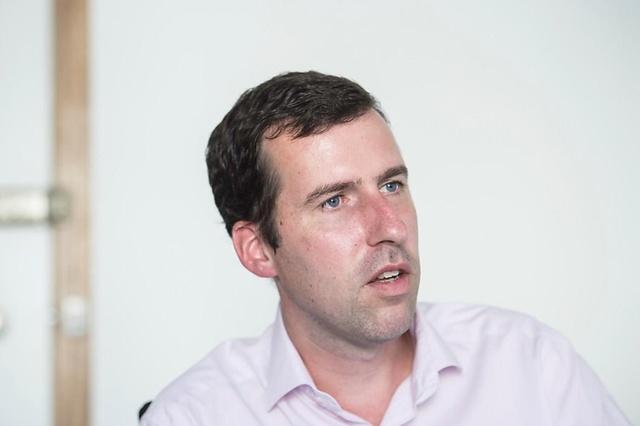Historian wins Latsis Prize for forced labour research

German historian Alexander Keese has won the National Latsis Prize 2016 for his work on ethnicity, forced labour and political transitions in West and Central Africa. The CHF100,000 ($99,000) award recognises outstanding researchers under the age of 40 in Switzerland.
Keese, 39, has held a Swiss National Science Foundation (SNCF) professorship at the University of GenevaExternal link since 2015.
The SNCF said his research on the decolonisation of West and Central Africa stood out for its originality and Eurocentric perspective.
This research has included the revival of forced labour from the end of the 19th century to the middle of the 20th century. For this, he carried out investigations in Angola, Cape Verde, and São Tomé and Príncipe.
“The fight against slavery was one of the main arguments Europeans used to intervene in Africa,” he said. “But it was these Europeans who forced the local populations to work on their projects. It was often really hard labour, which led to mass exoduses. Forced labour also increased during the Second World War as support for the war effort.”
Many similar labour practices still exist today in several former colonies, according to Keese.
“Experiences with forced labour have led in many cases to a deep mistrust among formerly colonised populations of development and infrastructure projects,” he said.
‘Exceptional scientific work’
The National Latsis PrizeExternal link is one of the most important scientific honours in Switzerland. The prize is awarded on behalf of the International Latsis Foundation to researchers up to the age of 40 for exceptional scientific work conducted in Switzerland.
In addition to the National Prize, four university Latsis Prizes are awarded each year by Swiss institutions, each worth CHF25,000.
The National Prize will be awarded on January 12 at the town hall in Bern. The Latsis foundationExternal link was created by the Greek family of the same name in Geneva in 1975.

In compliance with the JTI standards
More: SWI swissinfo.ch certified by the Journalism Trust Initiative












You can find an overview of ongoing debates with our journalists here . Please join us!
If you want to start a conversation about a topic raised in this article or want to report factual errors, email us at english@swissinfo.ch.